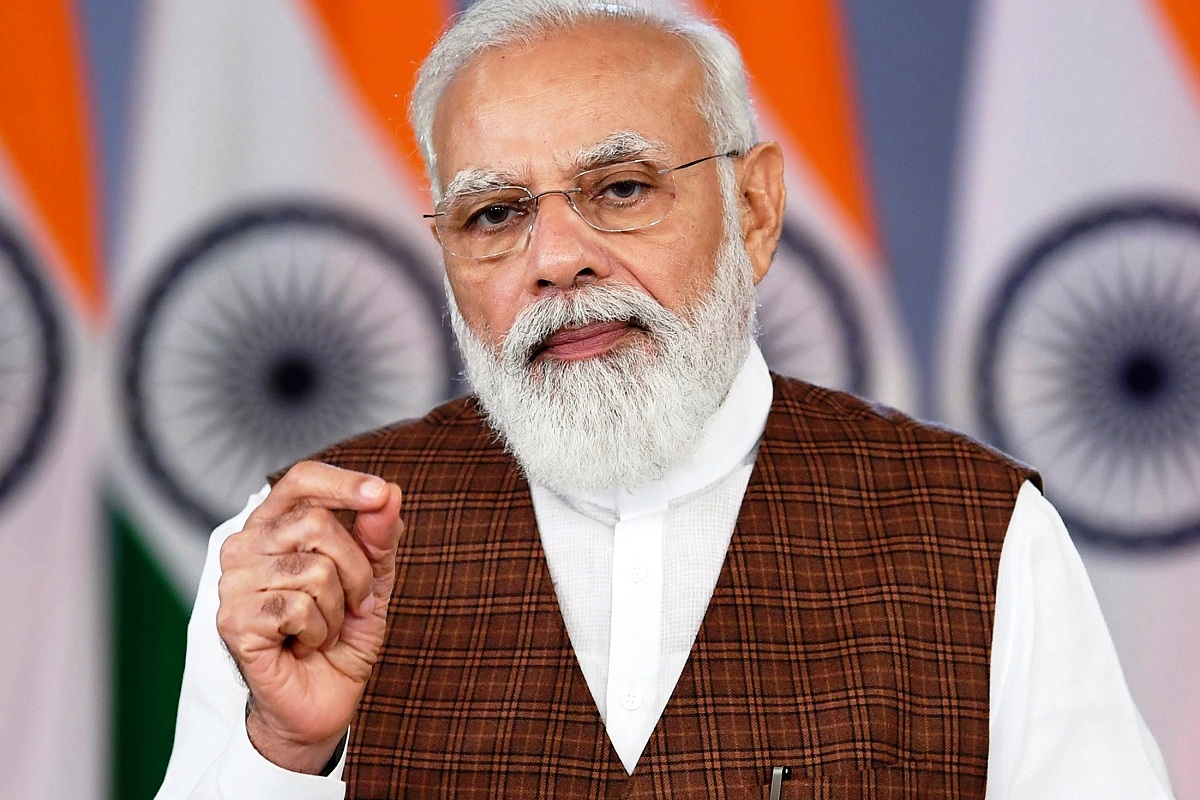PM Modi proposes linking UPI with payment systems of BIMSTEC countries
He said he was happy to share India's experience in setting up digital public infrastructure (DPI) with BIMSTEC countries.
In the spirit of holy ”Gurupurab”, the Prime Minister said that today was not the day for blaming anyone but rededicating oneself to working for the welfare of the farmers.
SNS | New Delhi | November 19, 2021 11:27 am

(ANI Photo)
Prime Minister Narendra Modi today announced his government’s decision to withdraw all three controversial farm laws even as he maintained that these legislations were brought for a bright future of ‘gaanv-gareeb’ (village-poor), with full integrity, clear conscience, and dedication towards farmers.
”In the Parliament session starting later this month, we will complete the constitutional process to repeal these three agricultural laws,” he said in an address to the nation on the occasion of Guru Nanak Jayanti. He also expressed happiness that after a gap of one and a half years, the Kartarpur Sahib Corridor has now reopened.
Advertisement
In the spirit of holy ”Gurupurab”, the Prime Minister said that today was not the day for blaming anyone but rededicating oneself to working for the welfare of the farmers. He also announced the formation of a committee to promote zero budgeting-based agriculture, to change crop patterns as per the changing needs of the country, and to make MSP more effective and transparent. The committee will have representatives of the central government, state governments, farmers, agricultural scientists, and agricultural economists.
Advertisement
Modi said the government’s objective by bringing these laws was to strengthen farmers of the country, especially small farmers, and ensure that they got the right price for their produce and maximum options to sell the produce.
The Prime Minister said that for years, farmers, agricultural experts and farmers’ organisations of the country were continuously making this demand. Earlier also many governments had brainstormed on this. This time also there was discussion in Parliament, brainstorming took place and these laws were brought up. In every nook and corner of the country, many farmers’ organisations welcomed and supported the legislation, he pointed out. The Prime Minister expressed his gratitude to the organisations, farmers and individuals who supported the move.
“Such a sacred thing, absolutely pure, a matter of farmers’ interest, we could not explain to some farmers despite our efforts. Agricultural economists, scientists, progressive farmers also tried their best to make them understand the importance of agricultural laws,” he said.
A visibly emotional Prime Minister said he had seen the challenges of the farmers very closely in his five decades of public life. This was why when he was given an opportunity to serve the country as Prime Minister in 2014, he gave the highest priority to agriculture development and farmer welfare.
The Prime Minister said that four-pronged measures of seeds, insurance, market and savings were taken to ameliorate the conditions of farmers. Along with good quality seeds, the government also connected the farmers with facilities like neem coated urea, soil health card, and micro-irrigation, he said.
Advertisement
He said he was happy to share India's experience in setting up digital public infrastructure (DPI) with BIMSTEC countries.
BIMSTEC (Bay of Bengal Initiative for Multi-sectoral Technical and Economic Cooperation), the seven-nation grouping, brings together five Asian nations--India, Bhutan, Bangladesh, Nepal and Sri Lanka--and two Southeast Asian nations--Thailand and Myanmar.
Union Minister and Leader of the House in the Rajya Sabha JP Nadda hit out at the Opposition on Thursday for opposing the Waqf Amendment Bill, saying the basic aim of this legislation is to bring in reforms and proper management of Waqf properties.
Advertisement
